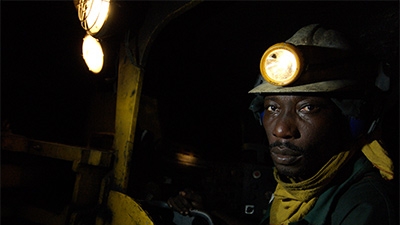The EITI, Extractive Industries Transparency Initiative, the global standard for transparency of revenues from natural resources, is holding its 2013 Global Conference in Sydney, Australia. Launched in 2003, the EITI promotes and supports improved governance and transparency in resource-rich countries by ensuring companies publish what they pay and governments publish what they receive in an EITI report.
Nigeria’s Minister of Mines and Steel Development, Musa Sada, was quick to demonstrate the value of signing onto the Extractive Industries Transparency Initiative.
Speaking at the opening session of the 6th global EITI conference in in Sydney, Australia, Musa Sada said EITI audits had revealed $2 billion in underpayments to Nigeria. It was money he said that had been recovered and channeled into the country’s infrastructure.
There are now 39 countries around the globe which have joined EITI – the Extractive Industries Transparency Initiative – which requires full disclosure of taxes, royalties and other fees from a country’s oil, gas and mining sectors. About half of the countries are in Africa.
Transparency Top Priority
In opening the 6th EITI conference, which has attracted delegates from about 100 countries around the globe, EITI chair Clare Short, announced that the United Kingdom and France would join other countries in committing to implement the EITI.
In a video address played to the conference, the British Prime Minister David Cameron said transparency was a top priority for Britian in its presidency of the G8 and “nowhere is transparency more important than in extractive industries.”
And just prior to the start of the conference, it was also announced that Honduras and the Philippines would now implement the EITI standard, a move which requires both countries to publish their first EITI report within a year and a half.
“By signing onto EITI, countries are sending a clear message that they want to increase transparency and accountability when it comes to their natural resources,” said Paulo de Sa, manager of the World Bank’s Oil, Gas and Mining Unit. “This transparency is fundamental to helping ensure that the benefits of a country’s natural resources can help developing nations in their quest to reduce poverty and boost shared prosperity.”



